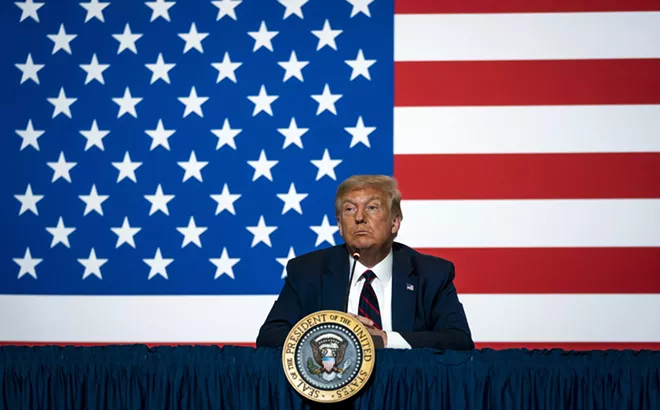
The New York Times Company
NEW YORK — The Manhattan District Attorney’s Office suggested Monday that it has been investigating President Donald Trump and his company for possible bank and insurance fraud, a significantly broader inquiry than the prosecutors have acknowledged in the past.
The suggestion by the office of the district attorney, Cyrus R. Vance Jr., came in a new federal court filing arguing Trump’s accountants should have to comply with a subpoena seeking eight years of his personal and corporate tax returns. Trump had asked a judge to declare the subpoena invalid.
Until now, the district attorney’s inquiry had appeared largely focused on hush-money payments made in the run-up to the 2016 presidential election to two women who said they had affairs with Trump.
In the new filing, the prosecutors did not directly identify the subject of their inquiry. But they said that “undisputed” assertions in earlier court papers and several news reports about Trump’s business practices showed that the office had a wide legal basis for the subpoena.
“In light of these public reports of possibly extensive and protracted criminal conduct at the Trump Organization,” there was nothing improper or even unusual about the subpoena, the filing said.
They cited newspaper investigations that concluded the president may have illegally inflated his net worth and the value of his properties to lenders and insurers. They also included an article on the congressional testimony of his former lawyer and fixer, Michael D. Cohen, who told lawmakers last year that the president had committed insurance fraud. Lawyers for the president have denied wrongdoing.
The suggestion that the investigation, which has gone on for nearly two years, was broader than Vance’s office had previously acknowledged could raise the stakes for Trump, his company and its executives, if the inquiry were ever to lead to charges of bank or insurance fraud, which are felonies.
If Vance succeeds in eventually obtaining Trump’s records, they are unlikely to become public anytime soon because they will be shielded by grand jury secrecy rules. The records might only emerge later if criminal charges are brought and the records are introduced in a trial.














